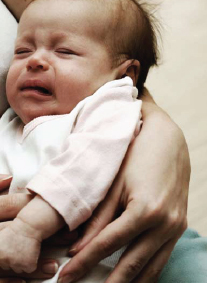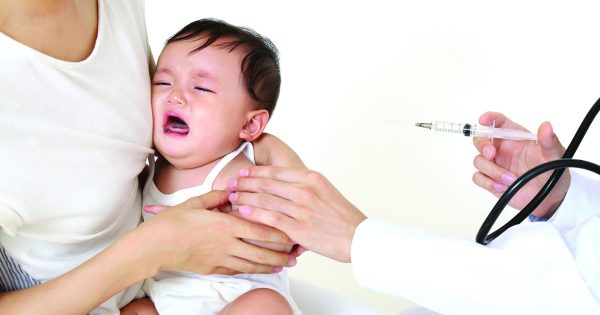Diarrhoea is characterised by frequent passing of loose, watery stools that can last several days to a week. It may arise from infective causes such as bacteria (Shigella, Escherichia coli), viruses (Rotavirus), as well as parasites. Noninfective causes of diarrhoea include food intolerance, reactions to certain medicines, intestinal diseases, or other functional bowel diseases.
Baby’s stools are typically soft, especially if baby has been breastfed, runny and quite frequent. Newborn babies can pass up to 10 bowel movements a day, while a 4 month old baby may have 3. A baby who starts eating solid food would have firmer stools. Look out for a sudden increase in the frequency of bowel movements or sudden change in appearance of stools. If the stool appears more watery and looser than usual, he may be having diarrhoea. Young babies who have more than one stool per-feeding may also be experiencing diarrhoea.
Sometimes, diarrhoea can be accompanied by vomiting, fever, loss of appetite, stomach pain/cramps or a bloated stomach.
How to care for your baby
- Change your baby’s diaper immediately after each bowel movement.
- Apply petroleum jelly or barrier cream on baby’s sore bottom to help relieve the pain.
- Increase consumption of fluids and continue your baby’s regular diet.
- If your baby is over 6 months old and has had diarrhoea for over 24 hours, you can feed him cereal, rice porridge, strained bananas, strained carrots, mashed potatoes, and other high-fibre foods.
- Ask your doctor for zinc supplements. The World Health Organisation (WHO) recommends zinc supplements to children with diarrhoea for 10 to 14 days during and after diarrhoea as it reduces duration and severity of diarrhoea.
- Do not give medications to stop diarrhoea unless prescribed by the doctor.
Rotavirus Gastroenteritis
Rotavirus gastroenteritis is a common cause of diarrhoea among children under the age of 5 years. In Malaysia, out of the total children hospitalised due to diarrhoea in Hospital Kuala Lumpur and Sarawak General Hospital, 49% were reported to be caused by rotavirus. Most other hospitals report 20-30%.
Parents play a role in reducing the risk of diarrhoea and rotavirus infection in their babies. Exclusive breastfeeding for babies up to 6 months of age is recommended as it eliminates the risk of your baby consuming contaminated food. Breast milk also has added benefits of boosting baby’s immune system. Parents can also play their part in keeping their home environment clean by practising good home and personal hygiene, practising proper disposal of sewage and ensuring sanitary food handling as well as providing clean drinking water.
Vaccinate
The rotavirus vaccine is available as an optional vaccine for babies aged less than 6 months in Malaysia. This vaccine prevents severe disease by simulating the natural infection. The vaccine is given orally, in 2 or 3 dosages depending on vaccine’s manufacturer. It is given every 4 weeks between the ages of 6 and 24 weeks. It is available in private practices in Malaysia. You need not restrict your baby’s food or milk intake before or after vaccination.
Vaccinate to protect your baby.







Comments